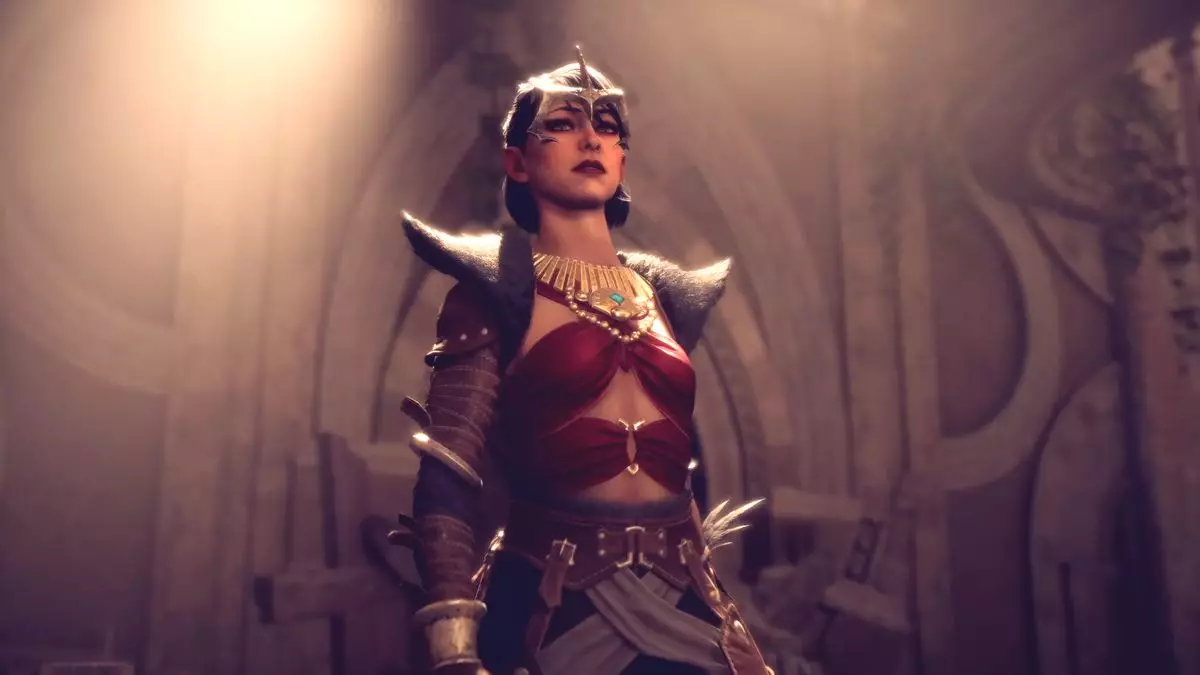David Gaider, renowned for his outstanding contribution to the narrative landscape of the Dragon Age series, has left an indelible mark on gaming culture. His work on the first three Dragon Age games molded not just the game’s storylines, but also the intricacies of its characters, particularly the enigmatic Morrigan. In a recent discussion following the release of Dragon Age: The Veilguard, Gaider took the opportunity to share insights into the character’s inception and the remarkable journey that led to Claudia Black being cast as the voice behind Morrigan.
Gaider’s reflections reveal a character that was initially conceived through an amalgamation of mythological influences. Describing Morrigan’s foundation, he explains that she was originally inspired by Morgan le Fay from Arthurian legend, blended with nuances reminiscent of Delirium from Neil Gaiman’s Sandman. This creative genesis speaks not only to Gaider’s literary prowess but also to the layered complexities that define MMORPG storytelling. Rather than crafting a simplistic archetype, Gaider and his team envisioned Morrigan’s character as one filled with contradictions—a figure grappling with a desire for connection but held back by her cynical worldview.
The initial casting process for Morrigan was not without its challenges. In their quest to embody the character’s essence, the developers were initially inclined toward a Middle-Eastern actress, aligning with their vision for authenticity and representation. They had Shoreh Aghdashloo in mind to voice Flemeth, and naturally, they sought someone with a similar vocal quality for Morrigan. However, when circumstances led Aghdashloo to drop out, the casting team found themselves in a predicament, scrambling to find a suitable alternative for two critical roles at once.
It was during this moment of uncertainty that the unexpected happened—Claudia Black entered the picture. Gaider recounts a memorable occasion when Caroline, the voice-over director, presented an unexpected audition tape. However, it was not a traditional audition; instead, it was a rendition of “Baby Got Back” in the style of a beat poet. This unconventional entry surprisingly became a turning point. Gaider’s candid excitement for Black’s performance speaks volumes about the spontaneity that can lead to groundbreaking creativity in the gaming industry.
Gaider’s initial resistance from higher-ups reflects a common tension in creative fields—balancing fresh ideas with proven formulas. However, his belief in Black’s raw, distinct voice, described humorously as sounding like she “smokes three packs a day,” indicates a deep appreciation for authenticity over polished perfection. This ethos became a hallmark of the Dragon Age series, which is noted for its character-driven storytelling. By allowing Black the freedom to infuse her unique personality into the role, the developers unlocked a performance that resonated far beyond the conventional parameters of voice acting.
Importantly, the connection between Gaider and Black didn’t just stop at their professional relationship. Gaider’s anecdote about comparing Black to Helena Bonham Carter illustrates the personal dynamics among the creative team that also contribute to a character’s evolution. The camaraderie and mirth between the voice actors and developers form a narrative backdrop that elevates the entire experience for players.
Morrigan ultimately became more than just a product of her inspirations; she transformed into a emblematic figure of Dragon Age: Origins. Gaider reflects on how she became a “touchstone” in his narrative journey—an indication of how closely he intertwined with his characters on a personal level. As the series progresses and evolves, Morrigan’s role within the narrative continued to carry weight, showcasing the depth of storytelling that Dragon Age is known for.
As players embrace the return of Claudia Black in Dragon Age: The Veilguard, it’s clear that Morrigan remains an enduring allure in the franchise, even if her role differs this time around. Gaider’s recounting of her casting serves as a reminder of how unexpected paths and unconventional choices often lead to the most memorable narratives within the medium of video games. For fans of the series, her character will forever evoke the enchantment and complexity that Gaider sought to create, establishing not just a character, but a legacy in gaming history.


Leave a Reply